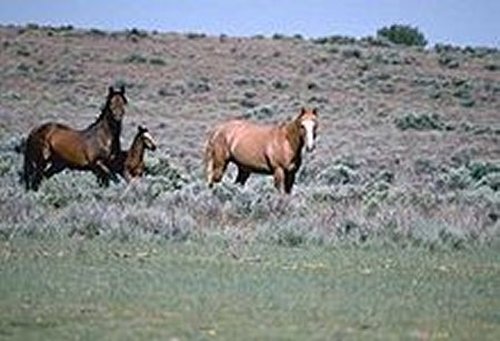Saying that BLM's attempt to exclude expert declarations of "material scientific evidence" from the agency's decision-making process in planning to castrate stallions in eastern Nevada, US District Judge Howell ruled that the agency "may not simply remain studiously ignorant of material scientific evidence well know to the agency and brought directly to its attention in timely-filed comments."

Viable herd of wild horses
Gelded stallions will not keep their bands together, which is an integral part of a viable herd.
US District Judge Beryl Howell in her 23-page opinion rejected the bureau's attempt and affirmed that the court would consider the "material scientific evidence contained in the declarations in future rulings in the case.
The ruling resulted from action filed by the American Wild Horse Preservation Campaign, the Western Watersheds Project and the Cloud Foundation challenging the bureau's plan to castrate stallions in eastern Nevada's Pancake Complex and to eliminate wild horses from the Jake's Wash Herd Management Area.
Scientific evidence had been submitted the Dr. Jay Kirkpatrick, the director of science and conservation biology at Zoo Montana, a foremost authority on wildlife reproductive biology. Dr. Kirkpatrick stated: "The very essence of the wild horse, that is, what makes it a wild horse, is the social organization and social behaviors. Geldings (castrated male horses) no longer exhibit the natural behaviors of non-castrated stallions."
"Furthermore gelded stallions will not keep their bands together, which is an integral part of a viable herd. These social dynamics were molded by millions of years of evolution, and will be destroyed if the BLM returns castrated horses to the herd management areas. Castrating horses will effectively remove the biological and physiological controls that prompt these stallions to behave like wild horses."
The filed complaint maintained that the bureau's plan violates the Wild Free Roaming Horses and Burros Act, the National Environmental Policy Act and the Administrative Procedures Act.
